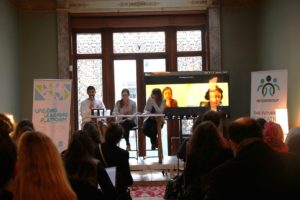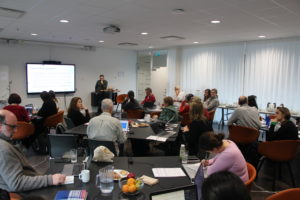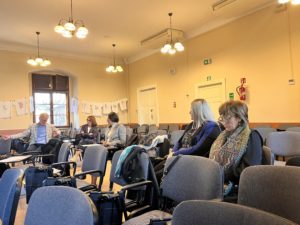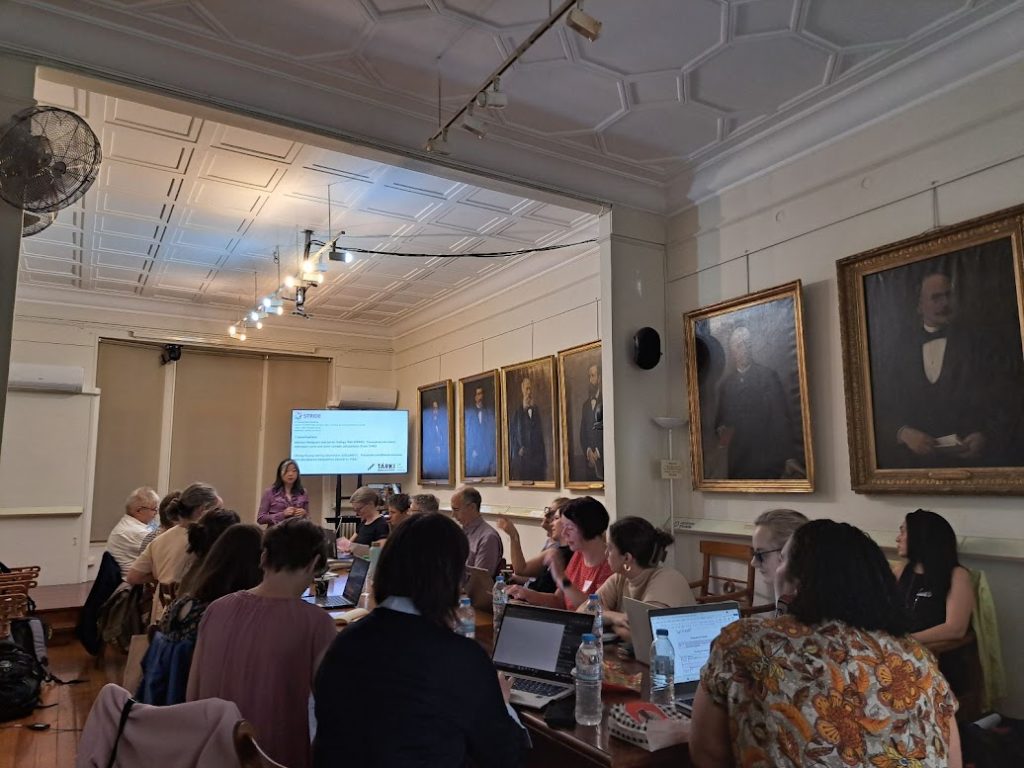First meeting of the NSG in Greece
On 6 June 2025, the National and Kapodistrian University of Athens (NKUA) team convened the inaugural National Stakeholder Group (NSG) meeting to present and discuss the STRIDE project. The meeting was held virtually to accommodate two NSG members based outside Athens who could not attend in person.
STRIDE National Stakeholder Groups foster ongoing dialogue and collaboration, ensuring that our project is rooted in local realities while promoting shared ownership of outcomes across diverse communities. These groups consist of a diverse range of educational stakeholders, spanning from policy to practice.
The NKUA team included team leader Dimitris Parsanoglou and two team members, Maria Symeonaki and Alexandros Sakellariou. NSG participants included Christos Zagkos, Professor of Sociology of Education at the University of Ioannina; Eleni Godevenou, a special education teacher and principal at a primary school in Chalkida, a city near Athens with a significant Roma minority; and Georgia Papadopoulou, a researcher in sociology of education at NKUA’s Department of Political Science and Public Administration. Two invited members were unable to attend.
Collaboration and Perspectives from Key Educational Stakeholders
The NKUA team delivered a detailed presentation of the STRIDE project, covering its aims, methodology, expected outputs, and partner institutions. Afterwards, Maria Symeonaki, WP4 leader, presented the interactive map component of the project.
All participants showed great interest in the project and committed to following STRIDE’s progress. The stakeholders highlighted that the interactive map is a valuable resource for various audiences, including academics, students, policymakers, and practitioners in the field.
The discussion covered several key areas: participants inquired about the types of data collected and used, specifically whether the research employed primary or secondary data sources. Questions were raised regarding the existence, content, and quality of educational reform evaluations included in the project. Stakeholders requested clarification on whether the research documented connections between reforms, such as links between current and past policy initiatives. A suggestion was made to categorise educational reforms based on established academic frameworks, distinguishing between internal reforms (related to education content, e.g., introducing foreign language instruction in kindergarten) and external reforms (a policy or measure based on concerns stemming from other areas, e.g. abolition of vocational education programmes that do not meet labour market needs).
Participants stressed the importance of including dropout rates in the analysis and offered suggestions for their effective integration. Stakeholders recommended that future research consider including lifelong learning and wider education components, given their substantial growth over recent decades.
All NSG members were informed of opportunities to join future STRIDE meetings, depending on their availability. The NKUA team was notified of the upcoming Sociology of Education conference scheduled in Crete in 2027, where the team could present STRIDE findings and the interactive map.
A second NSG meeting has been scheduled for this autumn.












